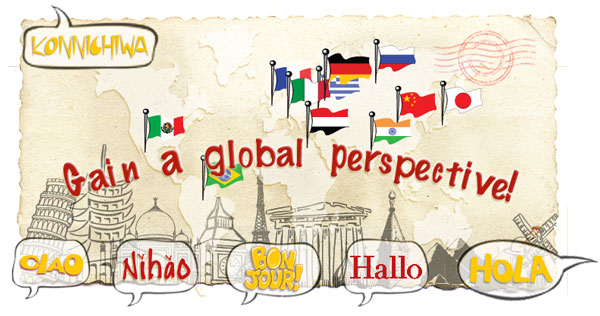

"In the Classroom," Zhao Laoshi thinks about how to explain a grammar patter to CLS student Ethan Prizant. Photo Credit: Jamie Manley/Shanghai, China '12
By Marlene Caroselli.
"Handle them carefully,” warned Strachan, “for words have more power than atom bombs.” On a more peaceful note, think about the positive power a single word has on the development of inter-cultural respect.
To illustrate, for a year in my young life, I traveled throughout Europe. It was impossible to learn many words from the language of each country my roommate and I visited, but we always tried to learn a few. We watched in repeated delight as grins broke out on Turkish faces when we said, “teshekur” (“thank you.”) We watched Egyptian eyes sparkle when we said, “sala Alla kum” (“Peace be with you.”) No matter where we traveled, it seemed the native people appreciated our efforts to learn their language — limited though those efforts were.
Decades later, I find the old behavioral patterns emerging again. I asked a lovely Chinese woman in the YMCA pool recently how to say “Good Morning” in her language. “Sow shah ha” ([zao shang hao) was her reply. And today, whether I am offering the greeting to her or any of her friends and family who are with her on a given day, I discover the reactions are the same.
It takes so little for us to show regard and respect for those whose lineage represents just one of the ingredients found in this melting pot, we know as America. Our cultural indebtedness begins with the Native Americans, of course. It was their migration more than ten thousand years ago from Asia to our land, well before the early European influences with the British, Scottish, Welsh, and Irish immigrants to colonial America. African influences arrived via the slave trade and other cultures arrived in immigrant waves to our shore.
If philosopher Ludwig Wittgenstein is correct in telling us that the boundaries of our language are the boundaries of our world, we can easily expand our knowledge of the world by merely learning and using a few words from languages other than our own.
Featured Photo Credit: cpcc.edu





No Responses to “Learning Cultural Sensitivity Through Language”